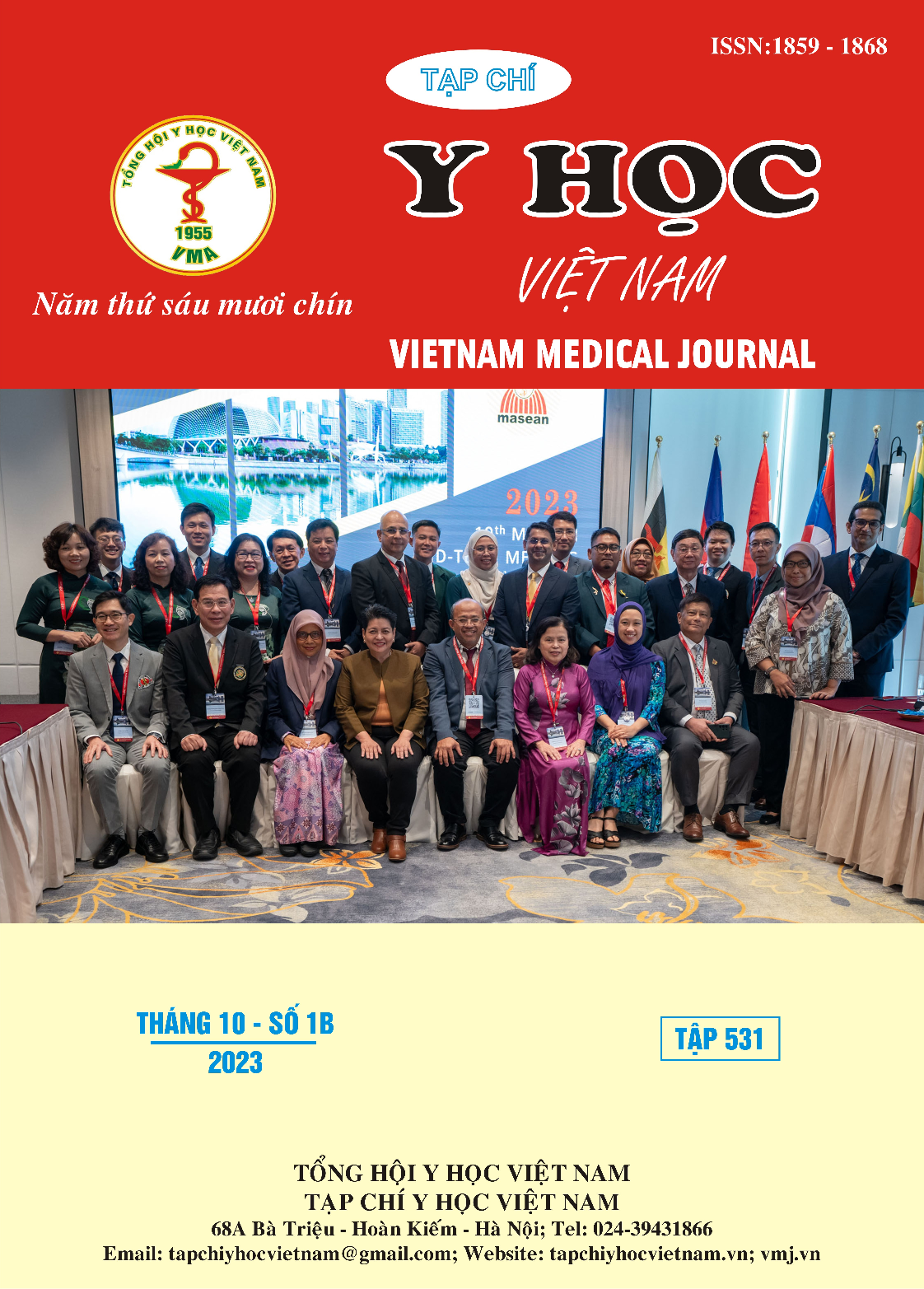INCIDENCE OF ASYMPTOMATIC HYPOGLYCEMIA IN ELDERLY PEOPLE WITH TYPE 2 DIABETES HOSPITALIZED AT DISTRICT 2 HOSPITAL
Main Article Content
Abstract
Background: Factors related to severe hypoglycemia in elderly people with type 2 diabetes were researched by using a continuous glucose monitoring system (CGMS) in order to better control blood sugar and limit hypoglycemic attacks without any symptoms in hematology. Objective: A survey of factors related to severe hypoglycemia in elderly people with type 2 diabetes hospitalized at District 2 Hospital in 2016-2018 was conducted. Materials and methods: Descriptive, cross-sectional and prospective research on 82 elderly inpatients with type 2 diabetes at District 2 Hospital were conducted. Results: In our study, It was noted that of 45 patients with hypoglycemia, 28 patients had mild hypoglycemia (62.2%), 17 patients had severe hypoglycemia (33.3%). Factors related to severe hypoglycemia in elderly people with type 2 diabetes includes rapid-acting insulin injection (58.8%), skipping dinner (15.6%), skipping dinner (15.6%), and gradually increasing medication (82,4%). Conclusion: Factors related to patients with hypoglycemia include rapid-acting insulin injection (58.8%), skipping dinner (15.6%), skipping dinner (15.6%), and gradually increasing medication. (82.4%) (P<0.001). Factors not related to severe hypoglycemia include age, gender, duration of diabetes, HbA1c, infection, total daily insulin requirements, kidney failure, liver failure.
Article Details
Keywords
Diabetes, hypoglycemia, elderly people.
References
2. Diabetes Control and Complications Trial Research Group (1993), "The effect of intensive treatment of diabetes on the development and progression of long-term complications in insulin-dependent diabetes mellitus. The Diabetes Control and Complications Trial Research Group", N Engl J Med, 329 (14), pp. 977-86.
3. Dluhy R. G., McMahon G. T. (2008), "Intensive glycemic control in the ACCORD and ADVANCE trials", N Engl J Med, 358 (24), pp. 2630-3.
4. Finfer S., Liu B., Chittock D. R., et al. (2012), "Hypoglycemia and risk of death in critically ill patients", N Engl J Med, 367 (12), pp. 1108-18.
5. Gerstein H. C., Miller M. E., Byington R. P., et al. (2008), "Effects of intensive glucose lowering in type 2 diabetes", N Engl J Med, 358 (24), pp. 2545-59.
6. Gomez A. M., Umpierrez G. E., Munoz O. M., et al. (2015), "Continuous Glucose Monitoring Versus Capillary Point-of-Care Testing for Inpatient Glycemic Control in Type 2 Diabetes Patients Hospitalized in the General Ward and Treated With a Basal Bolus Insulin Regimen", J Diabetes Sci Technol, 10 (2), pp. 325-9.
7. Gregg E. W., Engelgau M. M., Narayan V. (2002), "Complications of diabetes in elderly people", Bmj, 325 (7370), pp. 916-7.
8. Ishikawa T., Koshizaka M. (2018), "Continuous glucose monitoring reveals hypoglycemia risk in elderly patients with type 2 diabetes mellitus", J Diabetes Investig. 9 (1), pp. 69-74.
9. Kagansky N., Levy S., Rimon E., et al. (2003), "Hypoglycemia as a predictor of mortality in hospitalized elderly patients", Arch Intern Med, 163 (15), pp. 1825-9.
10. Munshi M. N., Segal A. R., Suhl E., et al. (2011), "Frequent hypoglycemia among elderly patients with poor glycemic control", Arch Intern Med, 171 (4), pp. 362-4.
11. Patel A., MacMahon S., Chalmers J., et al. (2008), "Intensive blood glucose control and vascular outcomes in patients with type 2 diabetes", N Engl J Med, 358 (24), pp. 2560-72.


